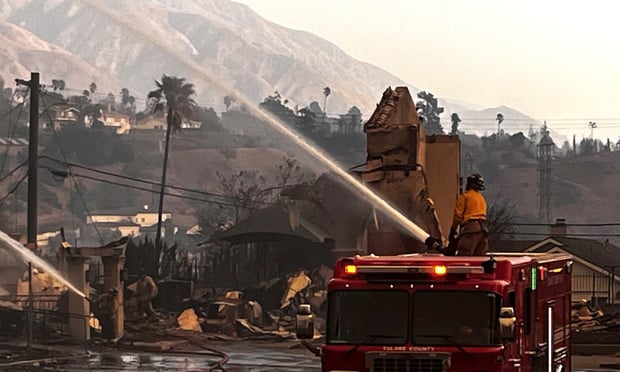Although many industry groups expressed "shock, dismay and disappointment" in reaction to the news earlier this month that the Terrorism Risk Insurance Program Reauthorization Act of 2014 (TRIPRA) will be allowed to expire, ratings agencies and brokers have been a little more optimistic.
S&P Rating Services: Underwriting as usual
The credit analysts at Standard & Poor's Rating Services don't expect to take "widespread rating actions" on U.S. insurers based on the lack of action by the U.S. Senate. The analysts do expect the legislation to be a focal point for the new Congress beginning Jan. 6, 2015. They also note that if a resolution doesn't occur during the first quarter of 2015, insurers may formulate their own contingency plans.
Insurers with stronger enterprise risk management (ERM) capabilities generally are more prepared to respond to the expiration of the terrorism insurance program. This group has already been reducing its terrorism exposures to less than their deductibles under the Terrorism Risk Insurance Act (TRIA), anticipating that the program would not be reauthorized or would be significantly scaled back.
[Related: Shock, dismay and disappointment: P&C insurance industry's reaction to TRIA news]
Overall, the analysts expect most underwriting to be "business as usual" in the near term. They note that Jan. 1, 2015, policy renewals are locked in, mitigating concerns regarding pricing and availability of coverage. At this point, the analysts don't expect many carriers to cancel policies before their scheduled expiration dates. They do note that there may be more demand for terrorism reinsurance while the government program in unavailable, possibly increasing reinsurance rates.
A.M. Best: No rating actions
A.M. Best has determined that "no rating actions on insurers previously identified as over-reliant on TRIPRA are necessary at this time." Anticipating that TRIPRA would not be enacted or insurance coverage materially altered, a rating committee evaluated the action plans of the rating units that had been identified as over-reliant on TRIPRA. After review, the committee determined that "sufficient mitigation initiatives" were developed to avoid a material impact on a ratings unit's financial strength.
A.M. Best continues to monitor insurers' data quality relating to terrorism exposures—that is, the concentration of terrorism-exposed risks—as well as ensure that action plans have been followed through on for the mitigation initiatives. Best will reevaluate the overly reliant rating units if it appears that they haven't successfully mitigated or have increased their terrorism exposures in the absence of TRIPRA and will take rating actions as necessary.
Willis: There is a solution
Willis, the global risk advisor, insurance and reinsurance broker, notes that the expiration of the terrorism insurance program "has the potential to cause serious disruption for many Willis clients." The company says that it is actively working with clients and carriers to determine alternative options in a "very fluid environment."
The company's biggest concern right now is that clients will need help in reevaluating their risk exposures "according to the changed environment where TRIA is no longer available as a back stop for the insurance market place. Of particular concern is where clients have loan covenants that determine the type and amount of terrorism insurance coverage that is required."
Willis also notes that there is no consistent approach from the insurance carrier community and recommends that clients work closely with their brokers to ensure that adequate coverage is in place. "There does remain a vibrant stand-alone terrorism solution which can be explored once clients have evaluated their needs."
ISO: Conditional terrorism endorsements will be activated
ISO, a Verisk Analytics business, announced on Dec. 18 that the termination of the Terrorism Risk Insurance Program will activate ISO's conditional commercial policy contract language to address terrorism coverage.
The terms of ISO's conditional terrorism endorsements will become applicable on January 1, 2015, to policies to which they are attached and would apply to any losses that occur on or after that date. The conditional endorsements, first introduced in 2004, have been available not only for use with those policies issued earlier this year and that extend beyond TRIA's scheduled expiration but also for policies with inception dates beginning in 2015. The array of endorsements includes an exclusion for losses from acts of terrorism, an exclusion for losses from acts involving nuclear, biological, or chemical terrorism, and a means to cover terrorism losses not otherwise excluded up to a sublimit.
ISO's conditional terrorism endorsements are available for use by participating insurers in all states except Florida and New York.
AIR Worldwide: Workers' compensation market particularly vulnerable
Insurers that do continue to offer commercial terrorism insurance would likely be required to maintain higher capital standards in order to avoid negative rating implications, says AIR Worldwide, a catastrophe modeling firm. When coverage for terrorism-related events is still available, prices for this coverage will increase, AIR predicts.
"In the absence of TRIA, the workers' compensation insurance market would be particularly vulnerable to terror attack losses. State workers compensation statutes offer insurers less flexibility to control terrorism risk through modifications such as policy limits or coverage exclusions," AIR says. With or without TRIA, workers' compensation coverage is mandatory in all states. If coverage is not available, employers could have to purchase insurance in the residual markets or self-insure. "This could result in large amounts of risk being transferred to the residual market in a few states," AIR says.
If insurers limit underwriting following the expiration of TRIA, according to AIR, businesses with high concentrations of employees could have difficulty obtaining coverage for workers' compensation, including higher education institutions, hotels, airports, hospitals, and financial services, among many others.
Aon plc: Working with clients
Aon commented: "Since its passage over a decade ago in the wake of the 9/11 terrorist attacks, TRIA has stabilized the insurance markets by fostering certainty, lowering the risk of investment and increasing much-needed capacity for American businesses. With the pending expiration of TRIA, Aon is working with clients to clarify the impact on their businesses and the insurance markets as they plan for 2015 policy renewals."
Starr Insurance: Policies already include terrorism exposure
Maurice R. Greenberg, Chairman & Chief Executive Officer of Starr Insurance Holdings, Inc., said: "While we have every hope that Congress will pass an extension of TRIA when it convenes in January, Starr is ready to respond to the needs of our clients. We have capacity for stand-alone coverage for a broad array of Property, Casualty and Aviation exposures. We would also like to take this opportunity to emphasize that many of our policies already provide for terrorism exposure. We encourage you to contact us immediately to create solutions for your needs."
Want to continue reading?
Become a Free PropertyCasualty360 Digital Reader
Your access to unlimited PropertyCasualty360 content isn’t changing.
Once you are an ALM digital member, you’ll receive:
- Breaking insurance news and analysis, on-site and via our newsletters and custom alerts
- Weekly Insurance Speak podcast featuring exclusive interviews with industry leaders
- Educational webcasts, white papers, and ebooks from industry thought leaders
- Critical converage of the employee benefits and financial advisory markets on our other ALM sites, BenefitsPRO and ThinkAdvisor
Already have an account? Sign In Now
© 2025 ALM Global, LLC, All Rights Reserved. Request academic re-use from www.copyright.com. All other uses, submit a request to [email protected]. For more information visit Asset & Logo Licensing.








